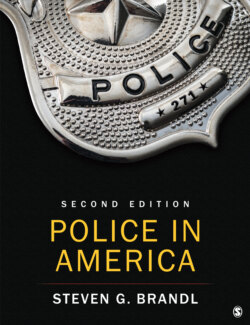Читать книгу Police in America - Steven G. Brandl - Страница 140
На сайте Литреса книга снята с продажи.
A Question of Ethics
ОглавлениеAre Police Undercover Strategies Ethical?
To combat certain crimes, such as drug dealing and prostitution, the police may conduct undercover sting operations. Sometimes a sting is known as a buy-bust operation. A sting involves an investigator posing as someone who wishes to buy or sell some illicit goods, such as drugs or sex, or to conduct some other illicit transaction. When the terms of the deal are determined or the deal itself is done, police officers waiting nearby can execute an arrest. Although sometimes subject to claims of entrapment depending on the particulars of the operation, sting operations are legal. Nevertheless, they can be controversial. Fundamentally, this is because sting operations are based on police deceit, on lying, on police pretending to be someone they are not. Deception in this context is legal, but is it ethical? What do you think? Is it ethically okay for the police to use “dirty” means, to lie and deceive, in order to identify criminals and control crime? Under what circumstances is it ethically okay? When is it not ethically acceptable?
The problem is that only after the stop do the police determine that the vast majority of citizens are not involved in criminal behavior (see A Research Question feature). Another example of a controversial crime control tactic is when the police go undercover to identify offenders (see A Question of Ethics feature).
Simply stated, the difficulty for the police is that they are expected to control crime, but many of the tactics used to try to control crime are viewed as controversial, inappropriate, “dirty,” unethical, or just plain wrong. The continuing challenge is to discover crime control strategies that actually work but are not viewed as problematic.
